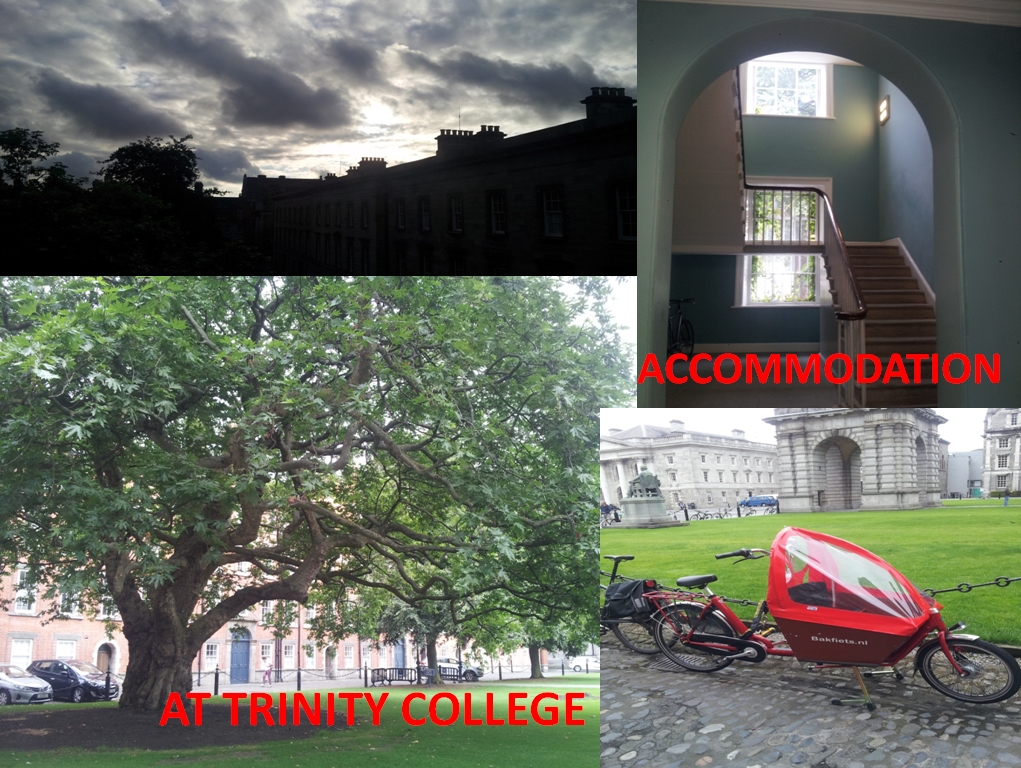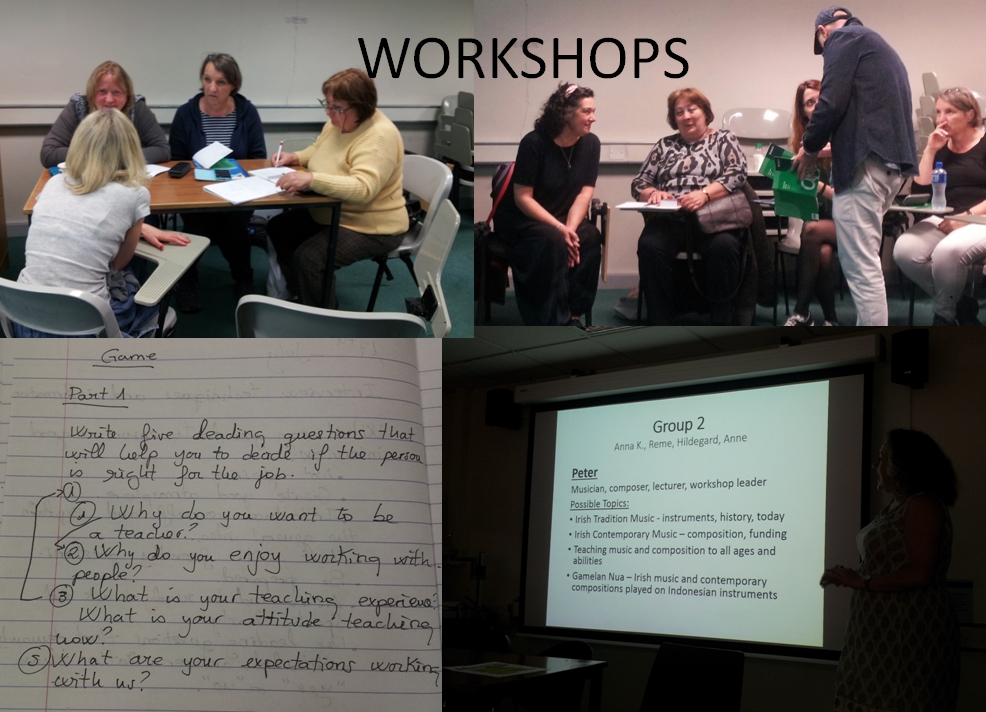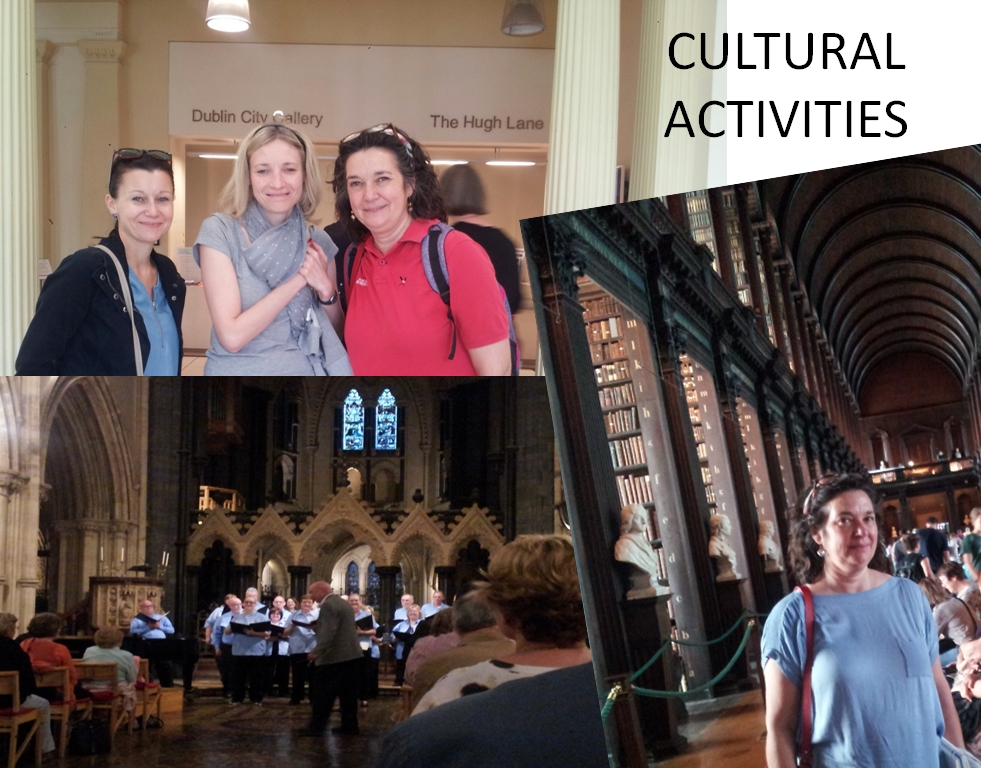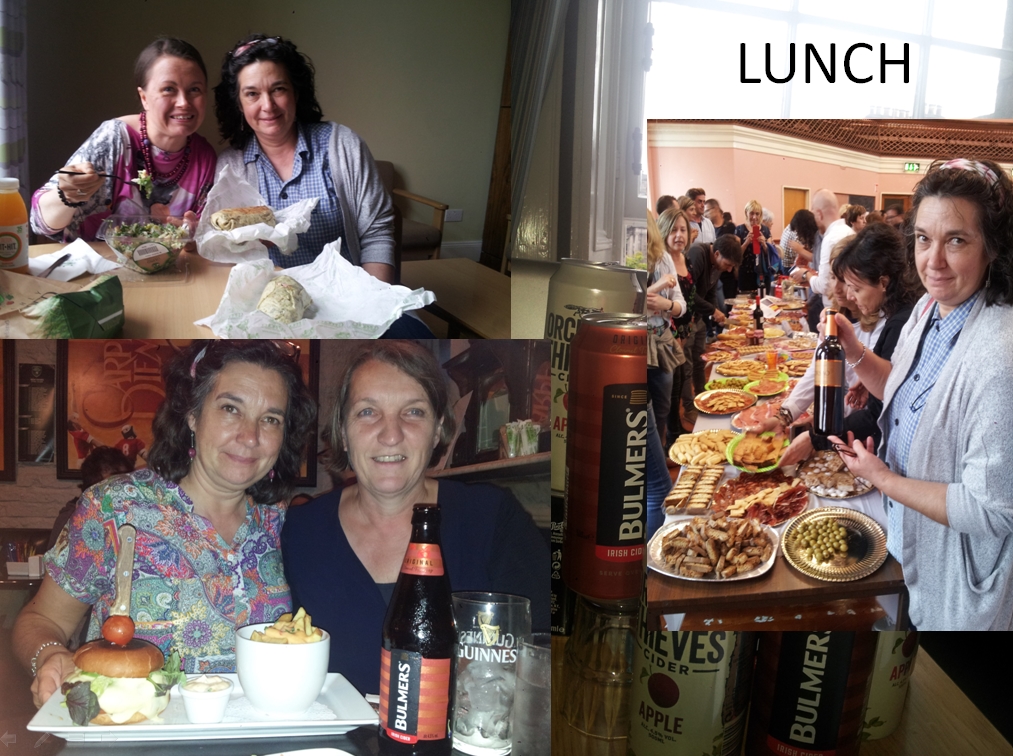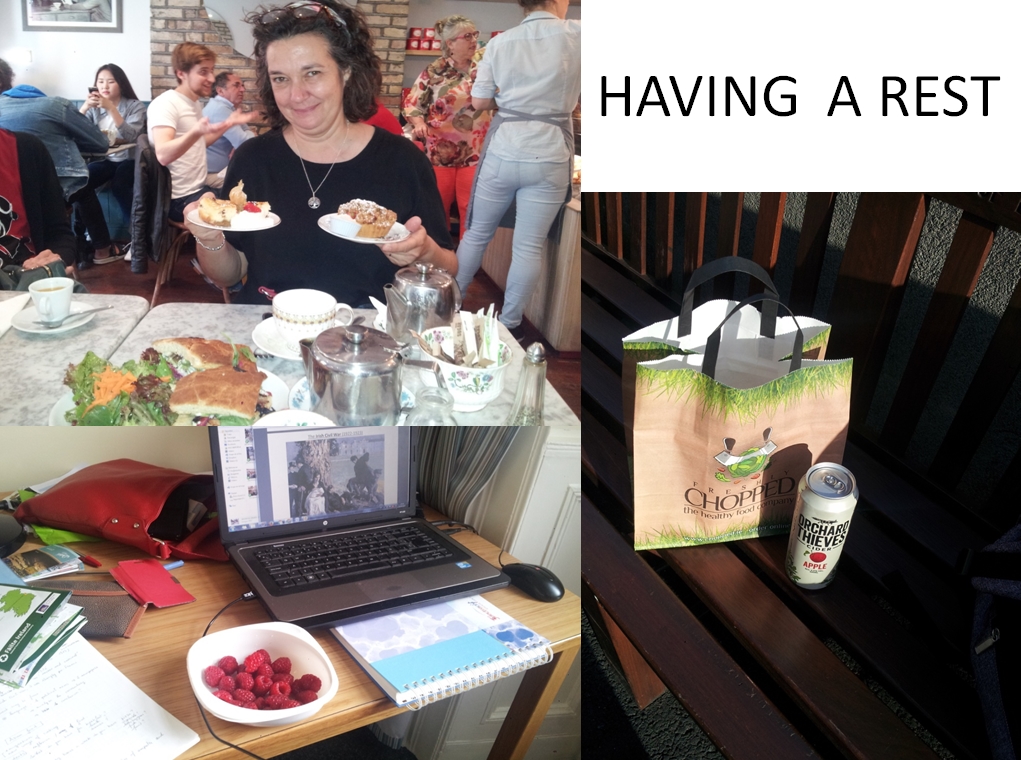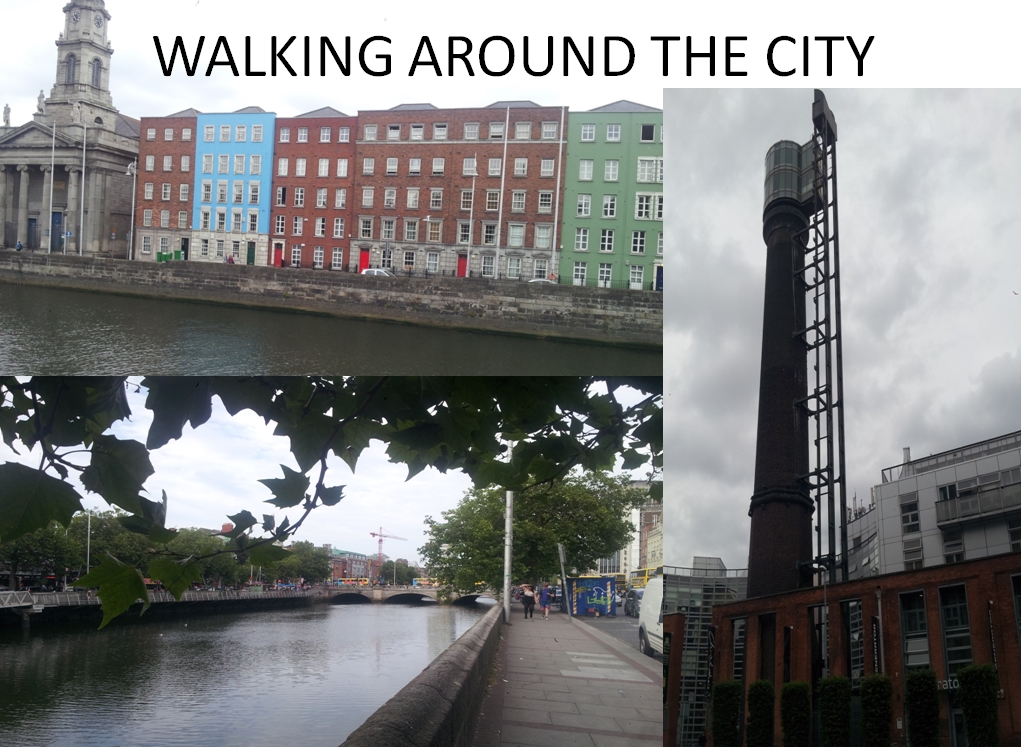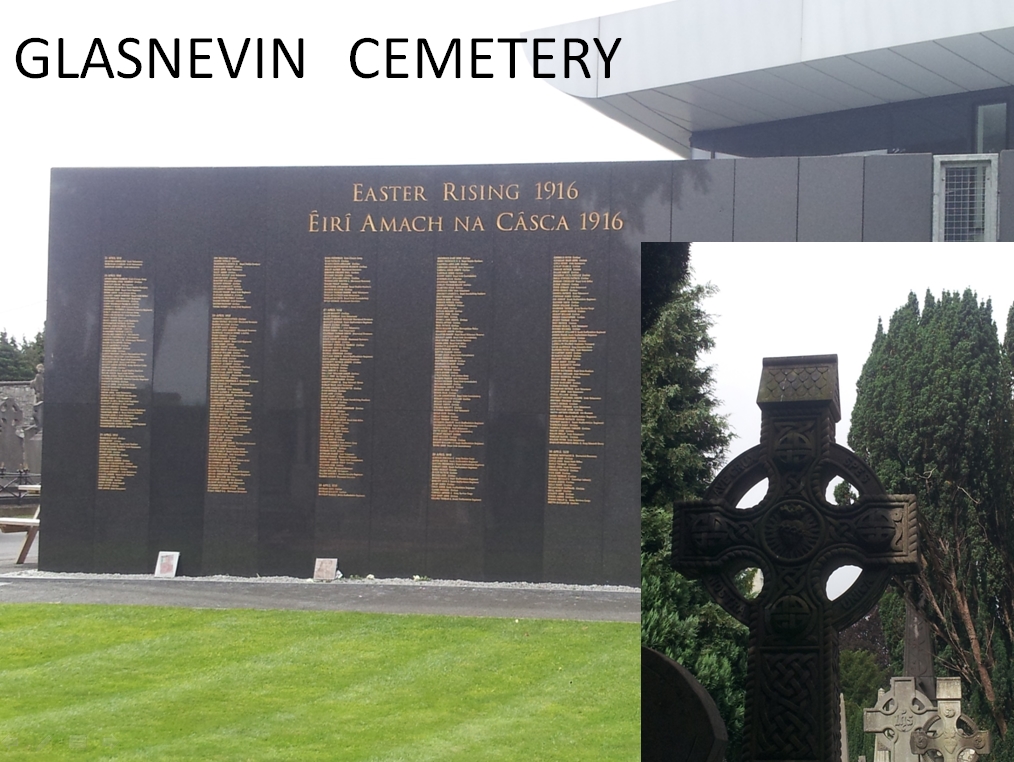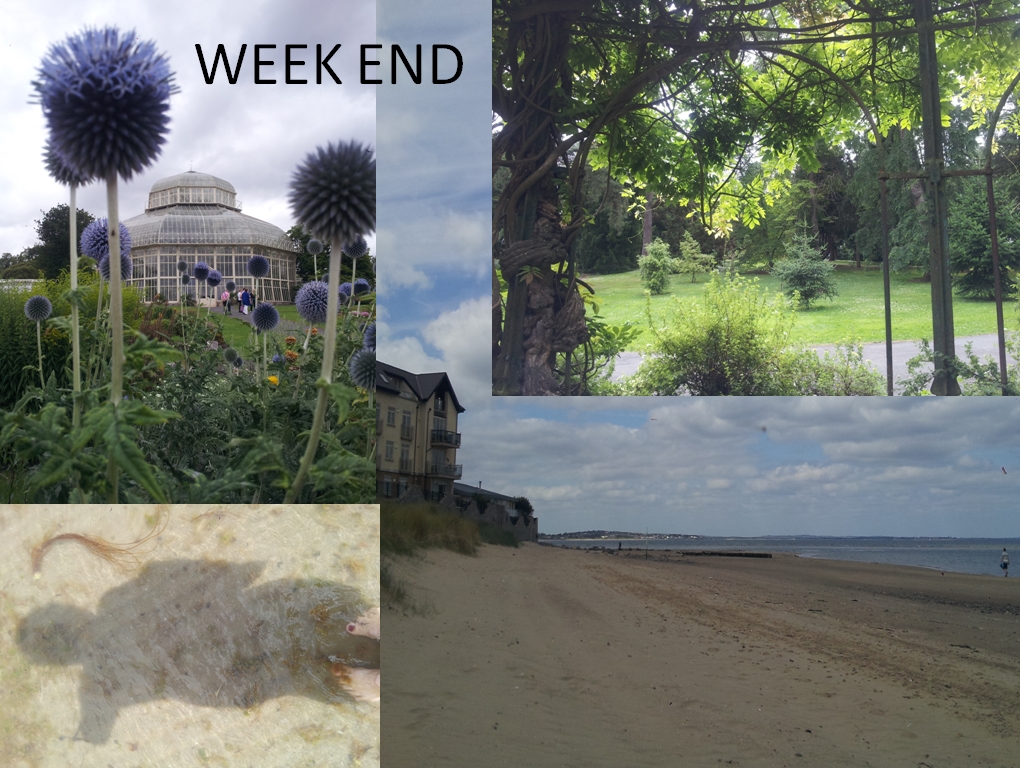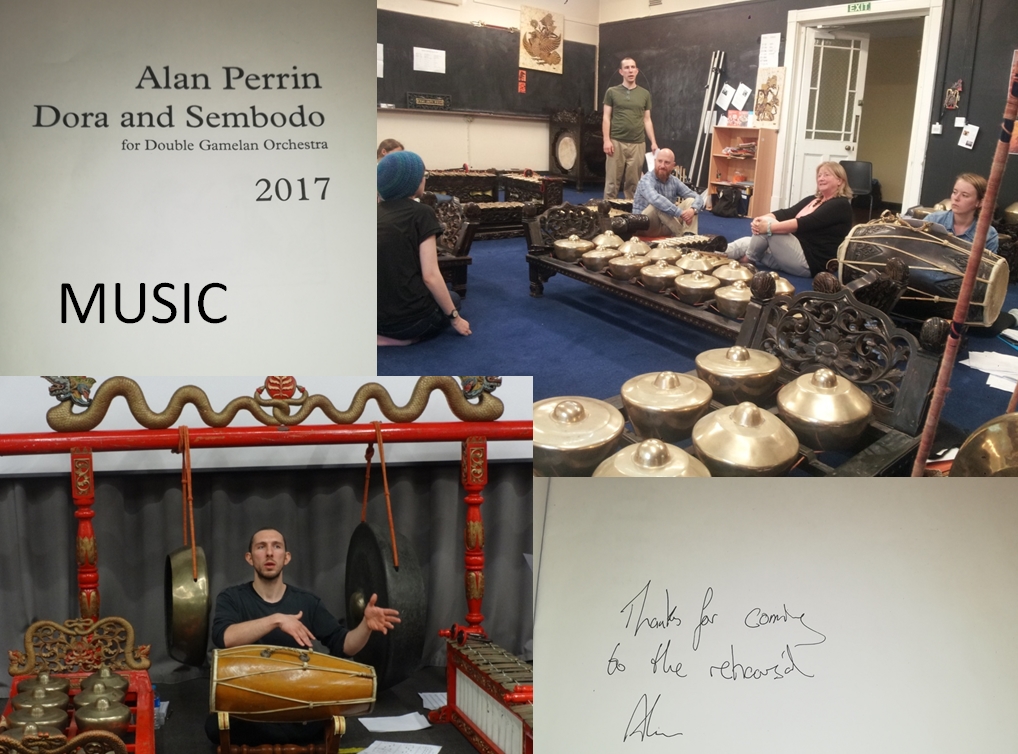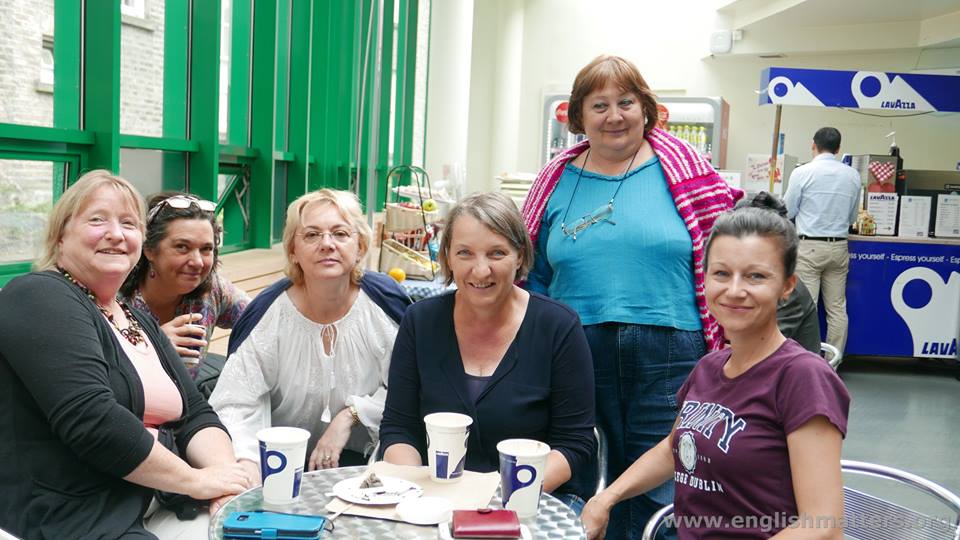ERASMUS+
TALKING TO PEOPLE - DUBLIN 9th to 21st JULY 2017
Written by Anne Claude Pouillieute, IES "Alonso de Orozco"
European ties? Lovely idea.
Erasmus +? An effective tool to make European (people) teachers aware of their differences and their similarities.
To be part of that? Here I am.
WHO I AM (Teacher professional data)
I am a Secondary teacher in a rural area. Currently I teach ALS (Ámbito Lingüístico y social) to Pmar groups and French at IES Alonso de Orozco (Oropesa. Toledo).
In the past, I lived in France and I taught Spanish at a Secondary School and French as a foreign language at Lille III University. Then I moved to Spain where I first taught English to young pupils (pre-school and primary) during eight years. Then I taught French and History and Geography in English within the Bilingual Education Project (British Council) at a Secondary School.
THE COURSE I HAVE CHOSEN AND WHY (Country, and receiving institution data. Training course)
DUBLIN – TRINITY COLLEGE - 10-21 July 2017
Erasmus+ Course: Talking to people: Inquiry-based & Cooperative Methodology.
I chose “DIVERSITY” because I though it is an increasing challenge teachers have to face .
I chose Ireland, and more particularly DUBLIN, because of the very good memories I had from my PALE formation eight years ago (Castilla la Mancha Program: 4 weeks in Dublin -1 week at International House and 3 weeks at St Mary's School, Baldoyle - School Internship programme - October 2008)
With that course, I wanted
- to share points of view about teaching
- to experiment different ways of teaching
- to learn more about Irish culture
- to improve my fluency in English and other skills in a more "natural" way (real interactions)
WHAT I HAVE LEARNT
I couldn't explain what I have learnt without talking about my teacher and my group.
|
1. My teacher:
Jessica Fahy was my teacher.
She studied art and literature.
Actually she is Art Historian – tutor, lecturer, tour guide and researcher.
She works for a variety of institutions including the Adult Education department of University College Dublin, the National Gallery of Ireland and the Hugh Lane Gallery.
Because of her background and her personality, my course was really wonderful.
|
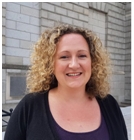 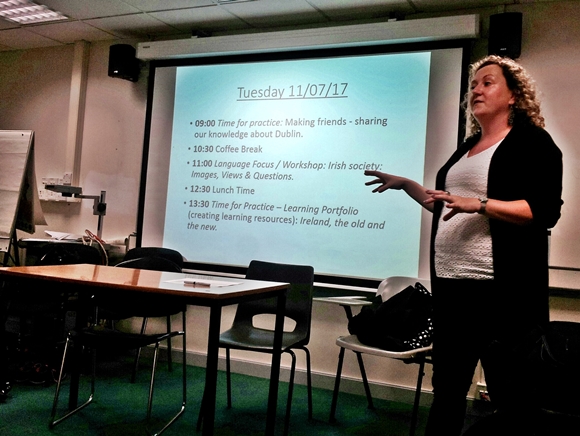
|
|
|
|
|
2. My group:
We were 17 teachers from Finland (1), Greece (1), Hungary (1), Germany (2), Romania (3), Poland (3) and Spain (6); Reme and I from Castilla-la-Mancha.
We came from almost all levels: pre-school, primary and secondary school, special needs, language school, adults and vocational training (textiles).
|
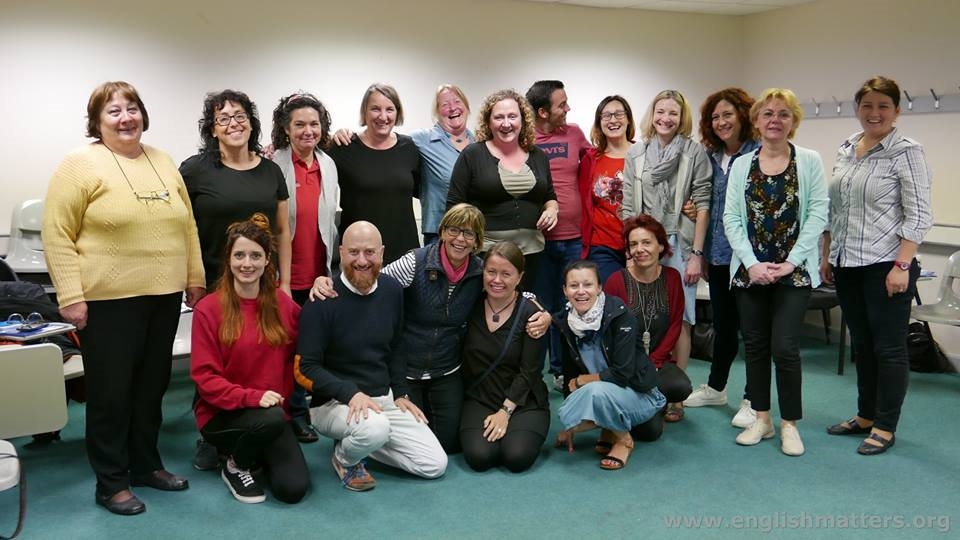 |
|
3. What I have learnt:
Irish cultural aspects:
- Gaelic games
- society / literature /art
- history / impact of the religion(s)
- music (traditional Irish music, music in Ireland: pub, Gamelan Nua, choir concert in Cathedral)
|
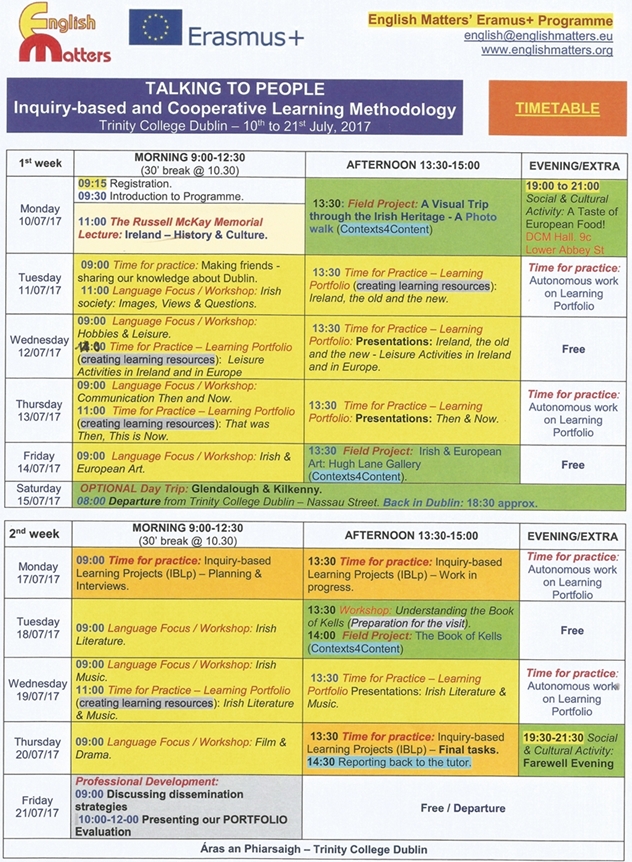 |
HOW:
- lectures
- workshops in class (changing the composition of the small groups)
- cultural visits (Hugh Lane Museum and Book of Kells)
- interviews (specially Peter Moran )
- listening music in our class, in pubs (recommendation from Peter Moran)
- dancing (in our class, at the Farewell evening)
- rehearsal at the National Concert Hall
- visits (National Museum of Ireland, botanic Gardens, Cemetery...)
- TALKING TO PEOPLE (At Trinity, in the street, at the concert...)
4. New ideas for my practice:
During that course, we shared our practice and we analyzed our teacher's practice.
In this report, I am only going to develop five ideas:
- it is difficult to discover new or "marvelous" activities
- using videos as a good tool
I have heard about Gaelic games. The presentation and Jess's explanations, learning through short videos, were very interesting (information and approach).
As a student, I appreciate learning using videos. It was a way to experiment the sensation I hope my students may have when I use videos in my lessons.
- how to begin on Monday morning
The second week, on Monday morning, I came to the class and I asked my colleagues about their weekend but we didn't have enough time to speak. When Jess began the class, she asked everybody about the weekend. It was a light way to start on Monday morning.
It is normally difficult to begin the class on Monday morning because my students don't stop chatting. They come from different villages and they want to share their weekend with their classmates.
I think asking my students about the weekend is a very good idea to begin a class on Monday morning during the first five minutes.
- past and future activity
The first day, after lunch we visited some places in Dublin. Then Jess divided us into small groups and we had 45 minutes to take three pictures (one to illustrate the past, one for the present and one for the future) and then the next day we had to present our pictures and explain our choice.
I think it is easy to organize with my group and the results could be very positive: to make agreements, to find out different aspects of real life (History, economy, art, medias), to organize ideas, to organize a speech......
- real interview
Our teacher selected four people. She divided the class in four groups. We had to prepare an interview. Then we had to make the interview and then we had to report that interview to the rest of the class. In my case, I was totally lucky because my group Had to interview Peter Moran, Irish musician and composer.
I believe it is an activity I can apply in my class. My students would have to find out about the guest, to prepare very specific questions and a guideline. And they would have to summarize the interview.
- How teachers could apply the outcomes in the class and in their schools.
The problem is not to find out new wonderful activities. The problem is how to apply those ideas in the class. Sometimes it is almost impossible because of the number of students per class. In most of cases we have to adapt the new idea.
The previous paragraph develops how to apply some outcomes.
MY PERSONAL REFLECTIONS
Dominations
Our teacher Jess explained to us some aspects of Irish History. That led me to those considerations:
- using visual support is a good starting point for a class
- like Spain under Franco's dictatorship, Ireland suffered two dominations. Firstly it was the British domination and more recently the Catholic Church domination, with the consequences for women (article 44 of the Irish Constitution).
Students and teacher: a subtle combination
During the sessions we had to work in groups to prepare different activities. It was a way to make me aware of two important points for my practice as a teacher.
- when you work in group (a group of teachers with experience), it is very difficult to find a middle point to sum up all the ideas or points of view from the different members of the group. So the same for my students. I thought it could be easier for them to work in groups, but I realized it could be the opposite . So it is a point I have to considerate when I organize groups.
- listening to the different groups was very enriching: I could reinforce myself in the idea of what type of teacher I don't want to be. That is to say: "avoid long explanations and don't be THE protagonist". For me, the teacher shouldn't be a star, but in fact, a guide.
Are teachers artists?
Jess's presentation about Irish and European Art led me to those considerations:
- cubist artists present the different perceptions of the reality in a same picture. Teachers try to present different approaches of the same contents (pictures, explanations, audios....)
- Brancusi intended to simplify the representation of the reality. He was interested in the essence. The same for us, teachers: we try to select the main idea and to simplify it for our class.
Apparently it is a contradiction: regarding all the aspects and the essence at the same time. But I think it is the balance we have to find when we teach.
CONCLUSION
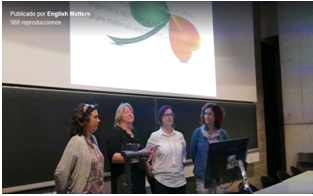 |
During those two weeks, we participated in workshops and worked in groups of different teachers. At the end, we made a short presentation.
We had to write a reflection journal for the organization "English matters": it has also been a way to stop and to meditate. In the future, as part of my personal learning, I would try to:
- stop from time to time and settle down.
- help my students to stop and consider their learning process.
|
For me, the negative aspect was the Spanish organization before the course:
- I had to book my flight before having the official ok because day after day prices were higher and higher due to the holiday period.
- Moreover, I don't understand why I have to pay in advance more than 2,500 euros. It is an aspect I have to consider for future Erasmus activities.
Fortunately, the positive aspects are the personal contacts (European teachers, Irish people..) I established. Those personal relationships and a great social network could lead to professional cooperation in near future.
PHOTOS
